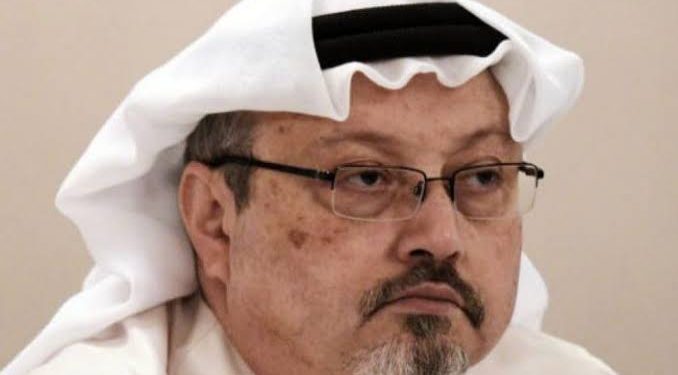Riyadh: Five people were sentenced to death Monday over Saudi journalist Jamal Khashoggi’s murder, but two top aides to the powerful crown prince were exonerated in a verdict that sparked international condemnation.
Khashoggi, a Washington Post contributor, was murdered in October last year in Saudi Arabia’s Istanbul consulate, tipping it into one of its worst diplomatic crises and tarnishing the reputation of de facto ruler Crown Prince Mohammed bin Salman.
Out of 11 individuals indicted in the case — most of whom remain unnamed — five were sentenced to death, three face jail terms totalling 24 years and the others were acquitted, the public prosecutor said.
The verdict, which was lambasted by Turkey and rights groups as a travesty of justice, underscores Saudi efforts to draw a line under the crisis as it seeks to reboot its international image ahead of next year’s G20 summit in Riyadh.
“The public prosecution’s investigation showed that the killing was not premeditated at the start of this mission”, but rather that it occurred in the heat of the moment, Saudi deputy prosecutor Shalaan al-Shalaan told a press conference.
The verdict can be appealed. Riyadh has described the murder as a “rogue” operation, but both the CIA and a United Nations special envoy have directly linked Prince Mohammed to the killing, a charge the kingdom vehemently denies.
Khashoggi, a 59-year-old Saudi insider-turned-critic, was strangled and his body cut into pieces by a 15-man Saudi squad inside the consulate, according to Turkish officials. His remains have not been found.
Saudi prosecutors had said deputy intelligence chief Ahmed al-Assiri oversaw Khashoggi’s killing and the US Treasury had claimed the royal court’s media czar Saud al-Qahtani was “part of the planning and execution” of the operation that led to the murder.
Qahtani was investigated but not indicted “due to insufficient evidence” and Assiri was charged, but eventually acquitted on the same grounds, Shalaan added.
Both aides were part of Prince Mohammed’s tight-knit inner circle and were formally sacked over the killing, but only Assiri appeared in the court hearings, according to Western sources.
Agnes Callamard, the UN special rapporteur on extrajudicial, summary or arbitrary executions, condemned the verdict as a “mockery”.
“Bottom line: the hit-men are guilty, sentenced to death,” she said on Twitter.
“The masterminds not only walk free. They have barely been touched by the investigation and the trial.” Turkey also blasted the “scandalous” verdict, saying those who dispatched the killers had been granted “impunity”.
The Washington Post’s publisher Fred Ryan denounced the “sham trial”, adding that “those ultimately responsible” in the Saudi leadership had escaped responsibility.
“If the court ruling is meant to put the Khashoggi affair to rest, it is unlikely to succeed,” HA Hellyer, senior associate fellow at the Royal United Services Institute, said.
“There is a strong belief among much of the international community that the senior Saudi establishment was behind the killing and this verdict does not inspire confidence that accountability has been achieved.” But Salah Khashoggi, the murdered journalist’s son who resides in the kingdom and denies reports of a financial settlement with the government, welcomed the verdict, saying justice had been served.
Qahtani, who led fiery social media campaigns against critics of the kingdom, has not appeared publicly since the murder and his whereabouts are a subject of fevered speculation.
Maher Mutreb, an intelligence operative who frequently travelled with the crown prince on foreign tours, forensic expert Salah al-Tubaigy and Fahad al-Balawi, a member of the Saudi royal guard, were among the 11 on trial, sources have said.
It was unclear if they were among those sentenced to death. The sources said that many of those accused defended themselves in court by saying they were carrying out Assiri’s orders, describing him as the “ringleader” of the operation.
The Riyadh court hearing the case held a total of nine sessions attended by representatives of the international community as well as Khashoggi’s family, Shalaan said.
“The verdict gives Saudi authorities the chance to claim ‘justice has been served’ as they are keen to move beyond the murder before next year’s G20 summit,” Quentin de Pimodan, a Saudi expert at the Greece-based Research Institute for European and American Studies, said.
“But that is unlikely especially after an untransparent investigation.”
Meanwhile, the United States welcomed death sentences issued by Saudi Arabia against five people.
“Today’s verdicts were an important step in holding those responsible for this terrible crime accountable,” a State Department official told reporters after the ruling, which was lambasted as a travesty by Turkey, rights groups, and The Washington Post, to which Khashoggi contributed.
The court however exonerated two top aides to Saudi Arabia’s powerful Crown Prince Mohammed bin Salman, whom the United States Senate considers responsible for Khashoggi’s murder in October last year at Riyadh’s consulate in Istanbul.
The United States “encouraged Saudi Arabia to undertake a fair and transparent judicial process,” the official added.
“We’re pressing them for more transparency and for holding everybody accountable.”
Riyadh has described the murder as a “rogue” operation, but both the CIA and a United Nations special envoy have directly linked Prince Mohammed to the killing, a charge the kingdom vehemently denies.
The government of US President Donald Trump has been careful to not attribute such blame to the prince, giving priority to maintaining good relations with the kingdom which is a major arms buyer and ally against Iran.
AFP






































